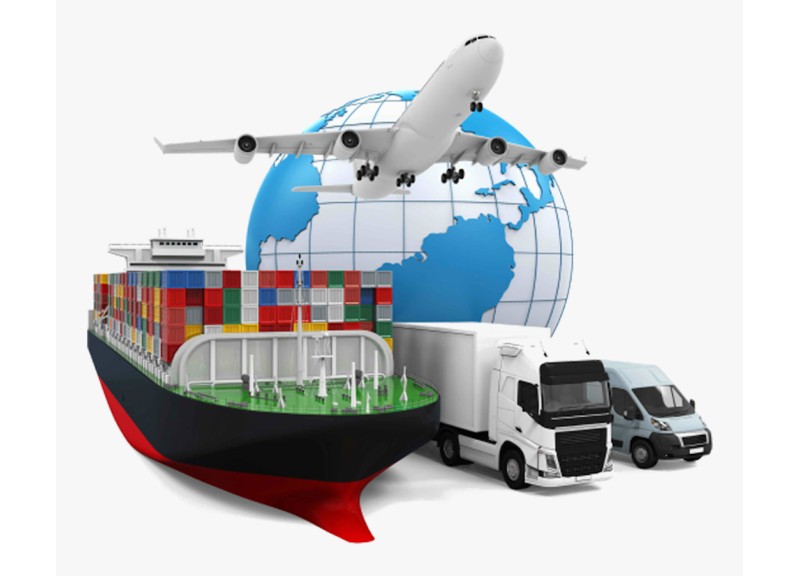-
6-meter and 12-meter cargo transportatio...
Sending all kinds of cargo \r\nSending 6-meter and 12-meter cargo \r\nWith more than 50 years of experience in road transportation\r\nProviding a bill of lading and government insurance \r\nEasy, fast and reliable transportation of cargo \r\nNissan Khavar single-track pickup truck Multi-axis coupling
Price: 30,000,000- Transportation of Saba
- Internal transport
- تهران
- Make Call
-
Parand Amir Bar cargo truck
Parand Amir Bar cargo truck\r\n☎️09198643569☎️\r\n☎️09124287924☎️\r\n☎️02156885485☎️\r\nIntroducing cargo and moving services in Parand\r\nParand transportation is one of the main services that includes cargo transportation and moving furniture in different areas of this city. These services include transporting home furniture, using various types of trucks such as Nissan and Khavar, packing household items and sending professional workers to customers\' homes.\r\nIntroducing cargo and moving services in Parand\r\nParand freight service areas include phase 6, industrial town, phase 2 and phase ...
Price: توافقی -
Cargo transportation with all kinds of r...
Transportation of your refrigerated cargo with all kinds of refrigerated cars in all parts of the country. Cargo transportation with:\r\n(refrigerated Nissan) 2 tons\r\n(refrigerated Isuzu) 4 tons\r\n(single refrigerator) 10 tons \r\n(refrigerated pair) 15 tons\r\nTransportation of meat and poultry, dairy products, frozen and perishable products, meat products, medicine, food, fruits and vegetables, including flowers and plants, and specialized transportation of cakes for your ceremonies and celebrations.\r\nManagement: Mohsani\r\nReservation and coordination: 8 a.m. to 11 p.m
-
Carry on to Georgia, and the cargo ازگرج...
Hi, Company International Transportation worth ترابر Areia registration number 41653(PJs) has مجوزفعالیت drummer, international transportation (فورواردروکریر)ازوزارت way وترابری the مستمروموفق درحمل centers of the external features ready خودراجهت cooperation in dealing باحمل imported goods وصادراتی from and to the countries of the esteemed companies declares: (shipping to Turkey, shipping to Baku, Azerbaijan cargo to Yerevan. transportation to Georgia, Transportation to Lebanon, and cargo to Turkmenistan shipping times to قزاقزستان cargo to Kyrgyzstan cargo to Tajikistan shipping to Uzbekista ...
- Trusted Company
- Remarkably, we must be ...
- Other
- تهران
- Make Call
-
شرکت بازرسان و ارزیابان خسارت زکیان Zaki... (Expired)
Zakian Surveyors & Loss Adjusters L.L.C Worldwide / Global / International Surveyors, Inspectors, Loss Adjusters, Claims Handlers, Investigators, Marin…
Price: 1 IRT -
Zakian Surveyors & Loss Adjuster... (Expired)
Zakian Surveyors & Loss Adjusters L.L.C Worldwide / Global / International Surveyors, Inspectors, Loss Adjusters, Claims Handlers, Investigators, Maritim…
Price: 1 IRT -
شرکت بازرسان و ارزیابان خسارت زکیان - Za... (Expired)
Zakian Surveyors & Loss Adjusters L.L.C Worldwide / Global / International Surveyors, Inspectors, Loss Adjusters, Claims Handlers, Investigators, Marin…
Price: 1 IRT -
شرکت بازرسان و ارزیابان خسارت زکیان - Za... (Expired)
Surveyors,Inspectors,Loss Adjusters,Claims,Investigators,Flag State Inspectors,Ship Registrars,Classification, ISO/Quality&Standardization, Insurance,P
Price: 1 IRT -
Nice cargo company (Expired)
Nik Ball Page Company with registration number 85774 has an official license from the Civil Aviation Organization with its central operations in the city of Mashhad, located in Razavi Khorasan Province, which provides domestic and international air cargo services.\r\nExpress air mail\r\nGoods, documents and documents, commercial and medical samples, transportation of live animals, etc.\r\nqualitative and specialized packaging\r\ndoor-to-door cargo delivery and post-fare and pre-fare\r\ndoing all customs formalities - Exporting all kinds of fruits, caviar, mushrooms and vegetables\r\nVisa colle ...
- Trusted Company
- Nice cargo
- international shipping
- خراسان رضوی
- Make Call
-
The highest quality cargo in the shortes... (Expired)
Experience a safe transport with modern packaging methods with Atlas Bar Pasargad Cargo with the highest quality and lowest price. Atlas Bar Pasargad Cargo with experienced and professional staff Packaging, transporting and moving your furniture using the latest international standard methods as soon as possible throughout the country and puts your satisfaction in the priority of this process. Some types of services can be provided by this carrier Includes experienced and trained staff, a variety of furniture machines such as vans, Nissan, East and trucks, the sale of furniture packaging equi ...

























